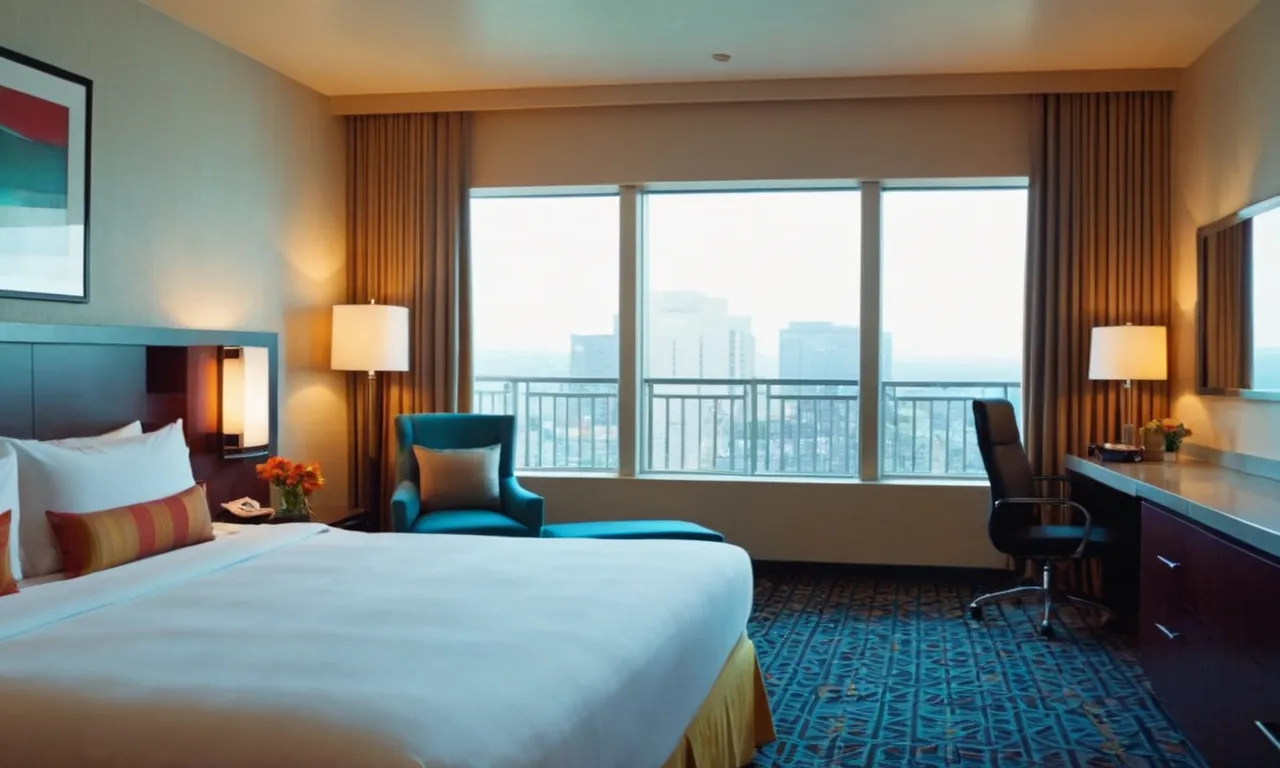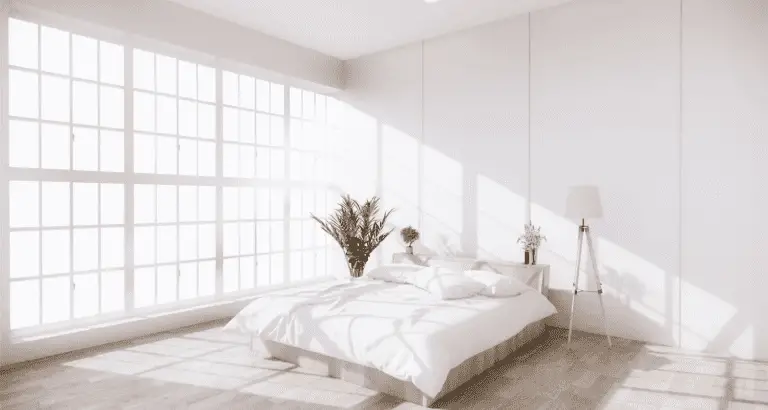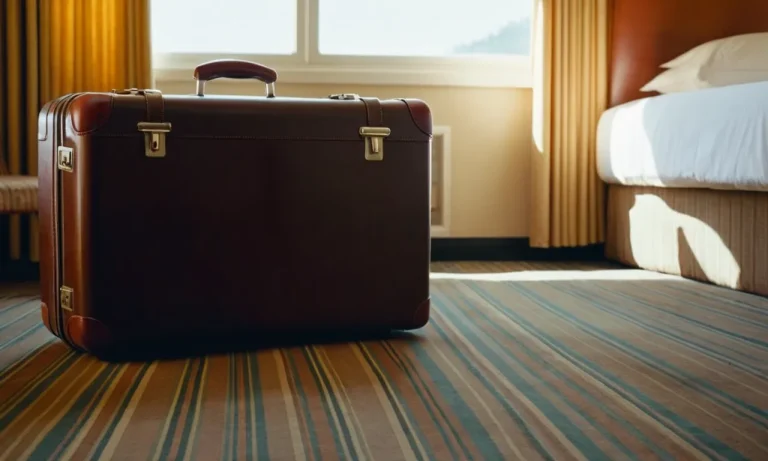Does The Number Of People In A Hotel Room Affect The Price?
When planning a trip, one of the most significant expenses to consider is accommodation. Whether you’re traveling solo, with a partner, or a group, the cost of a hotel room can make or break your budget. The question that often arises is: Does the number of people in a hotel room affect the price?
If you’re short on time, here’s a quick answer to your question: Yes, the number of people in a hotel room can affect the price, but the extent of the impact varies depending on the hotel’s policies, room type, and occupancy rates.
In this comprehensive article, we’ll delve into the factors that influence hotel room pricing based on occupancy, explore the different pricing strategies employed by hotels, and provide tips on how to maximize value for your money when booking accommodations.
Understanding Hotel Room Pricing Strategies
When it comes to booking a hotel room, the price can be a major factor in determining where you stay. But have you ever wondered what goes into determining those rates? Hotel room pricing strategies can be quite complex, with various factors influencing the final cost you see on your reservation.
Let’s dive into the world of hotel room pricing and explore some common strategies employed by the industry.
Standard Room Rates
At the core of hotel room pricing lies the standard room rate, often referred to as the “rack rate.” This rate serves as a baseline and is typically the highest price a hotel would charge for a particular room type during peak seasons or high-demand periods.
However, in reality, hotels rarely sell rooms at this rack rate. Instead, they employ various pricing strategies to attract guests and optimize their revenue. According to a study by Hotel News Resource, only about 10% of hotel rooms are sold at the rack rate.
Occupancy-Based Pricing
One common pricing strategy used by hotels is occupancy-based pricing, also known as “yield management.” This approach involves adjusting room rates based on anticipated occupancy levels. When demand is high, hotels may increase their rates to maximize revenue, while during low-occupancy periods, they may offer discounted rates to attract more guests.
According to Statista, the average hotel occupancy rate in the United States was around 63.7% in 2022, indicating that hotels often need to employ occupancy-based pricing strategies to fill their rooms.
Dynamic Pricing Models
In recent years, hotels have embraced dynamic pricing models, which take into account various factors beyond just occupancy levels. These models consider elements such as:
- Demand forecasts based on historical data and market trends
- Competition and pricing strategies of nearby hotels
- Special events or conventions taking place in the area
- Seasonality and weather patterns
By analyzing these variables, hotels can adjust their rates in real-time to maximize revenue and remain competitive. A study by McKinsey & Company found that hotels using dynamic pricing models can increase their revenue by up to 10% compared to traditional pricing strategies.
So, does the number of people in a hotel room affect the price? The short answer is: it can, but it’s not the only factor. While some hotels may charge a flat fee for additional guests, the overall room rate is often influenced by a combination of the strategies mentioned above.
It’s a delicate balancing act for hotels to optimize their pricing and ensure they remain competitive while maximizing revenue. By understanding these pricing strategies, travelers can make more informed decisions when booking their next hotel stay.
Factors Affecting Hotel Room Pricing for Multiple Occupants
When it comes to booking a hotel room, the price you pay can vary significantly depending on a number of factors, particularly if you’re planning to accommodate multiple guests in one room. Hoteliers take several considerations into account when determining room rates for multiple occupants.
These factors can impact the overall cost of your stay, so it’s essential to understand them to make an informed decision.
Room Type and Capacity
The type of room you choose and its maximum occupancy play a crucial role in determining the price. Standard rooms designed for double occupancy tend to have lower rates compared to larger suites or family rooms that can accommodate more guests.
Hotels often charge an additional fee, known as an “extra person charge,” for each additional guest beyond the standard occupancy limit. According to Hotel News Resource, this fee can range from $10 to $50 per night, depending on the hotel’s policies and the room type.
- Standard rooms (double occupancy): Base rate
- Suites or family rooms (multiple occupancy): Higher rate + extra person charges
Seasonality and Demand
The seasonality of travel and the demand for hotel rooms can significantly impact pricing for multiple occupants. During peak seasons or high-demand periods, such as holidays, festivals, or popular events, hotels may increase their rates across the board, including charges for additional guests.
On the other hand, during low seasons or periods of lower demand, hotels may offer discounts or waive additional guest fees to attract more bookings.
According to a study by Statista, the average daily rate for hotel rooms worldwide can vary by as much as 30% between peak and off-peak seasons. 😮 For example, in 2022, the average daily rate in July (a peak summer month) was $139, while in December (a low season) it was $98.
Hotel Policies and Amenities
Different hotels have varying policies and amenities that can affect pricing for multiple occupants. Some hotels may offer complimentary amenities like breakfast or parking for additional guests, while others may charge extra fees.
👍 Additionally, some hotels may have age restrictions or limitations on the number of guests allowed per room, which can impact pricing.
For instance, Marriott Hotels typically allow up to four guests in a standard room, with additional fees for the third and fourth guests. However, their policies may vary across different hotel brands and locations.
| Hotel Policy | Impact on Pricing |
|---|---|
| Complimentary breakfast for all guests | Lower additional guest fees |
| Paid parking for extra vehicles | Higher overall cost for multiple occupants |
Tips for Maximizing Value When Booking Hotel Rooms
Book in Advance
One of the best strategies to get the most bang for your buck when booking a hotel room is to plan ahead and book your stay well in advance. Hotels often offer significant discounts for early bookings, sometimes up to 20-30% off the regular rate.
By reserving your room months in advance, you can take advantage of these early bird specials and lock in a great deal. Additionally, booking early ensures you have a wider selection of room types and amenities to choose from before availability becomes limited.
Consider Alternative Accommodations
While traditional hotels are the go-to option for many travelers, it’s worth considering alternative accommodations that may offer better value for your money. Vacation rentals and home-sharing platforms like Airbnb and VRBO can provide more space, privacy, and amenities like a full kitchen at a fraction of the cost of a hotel room.
For longer stays or larger groups, these alternatives can be a real money-saver. 🏡 Additionally, hostels are an affordable option for budget-conscious travelers who don’t mind sharing common areas and bathrooms.
Negotiate and Look for Discounts
Don’t be afraid to negotiate or ask for discounts when booking a hotel room. Many hotels are willing to offer better rates or throw in extras like free breakfast or parking if you simply ask. It never hurts to inquire about any available discounts or promotions, especially if you’re booking directly with the hotel.
💰 You can also check for discount codes or coupons on websites like RetailMeNot or through membership organizations like AAA or AARP. Additionally, consider booking during off-peak seasons or weekdays when rates are typically lower.
By following these tips, you can maximize the value of your hotel stay and ensure you’re getting the best deal possible. Happy travels! 🎉
Frequently Asked Questions (FAQs)
When it comes to booking a hotel room, one of the most common questions people have is whether the number of occupants affects the price. After all, you don’t want to end up paying more than necessary, right?
Well, the answer is both yes and no – it really depends on the hotel’s policies and the type of room you’re booking. Let’s dive into some frequently asked questions to help you understand this better:
1. Do hotels charge extra for additional guests in a room? Many hotels do charge an extra fee per additional guest beyond the base occupancy of the room. This is known as an “additional person charge” or “extra guest fee.”
The amount can vary widely, from $10 to $50 or more per night, depending on the hotel’s policies and the location.
2. What is the base occupancy of a standard hotel room? Typically, a standard hotel room has a base occupancy of two people. This means that the quoted room rate is based on two guests staying in the room. If you plan to have more than two people in the room, you may need to pay an additional charge.3. Are there any exceptions to the additional guest fee? Yes, there are often exceptions. Many hotels don’t charge extra for children under a certain age (usually 12 or 18) when staying in the same room as their parents or guardians.
Some hotels also offer “family rooms” or “suites” that can accommodate more guests at the base rate without additional fees.
4. Can I avoid the additional guest fee by booking a larger room? In some cases, yes! If you know you’ll have more than two guests, it might be more cost-effective to book a larger room type (like a suite or family room) that can accommodate the additional guests at the base rate.
Be sure to check the room’s maximum occupancy before booking.
5. Do all hotels charge for additional guests? No, not all hotels charge extra for additional guests. Some hotels, especially those catering to families or larger groups, may include a higher base occupancy in their standard room rates. It’s always best to check the hotel’s policies before booking.
Remember, when it comes to hotel pricing and policies related to additional guests, it’s always a good idea to read the fine print and ask questions before booking. By understanding the hotel’s policies, you can make an informed decision and avoid any unexpected charges. Happy travels! 😊
Conclusion
The number of people in a hotel room can indeed affect the price, but the extent of the impact varies greatly depending on the hotel’s policies, room type, and occupancy rates. While some hotels charge a flat rate regardless of the number of guests, others implement occupancy-based pricing or dynamic pricing models that adjust rates based on demand and capacity.
By understanding the factors that influence hotel room pricing for multiple occupants, you can make informed decisions and maximize value when booking accommodations. Whether you’re traveling solo, with a partner, or a group, being aware of pricing strategies, considering alternative accommodations, and negotiating for discounts can help you save money without compromising on comfort and convenience.







